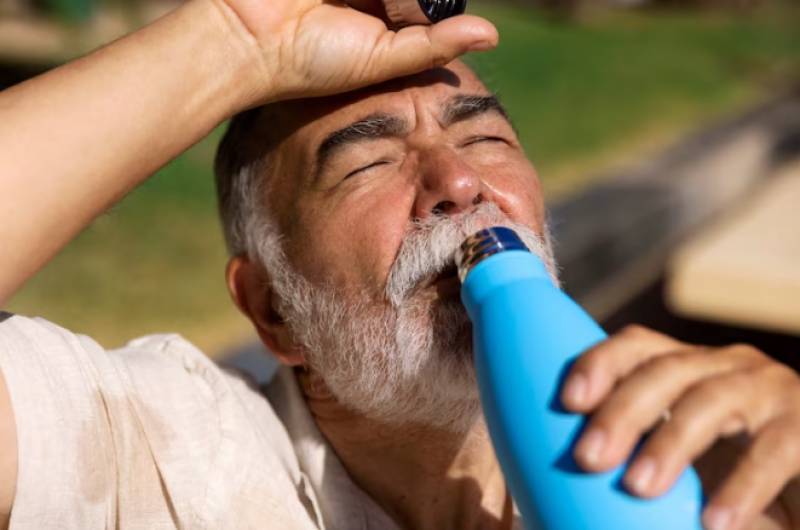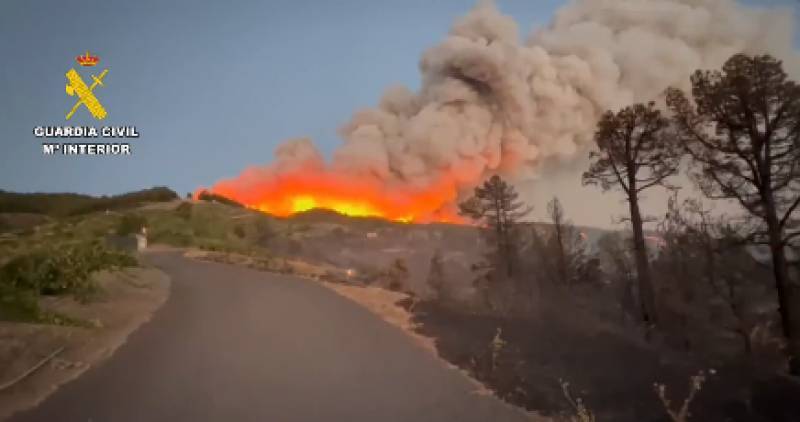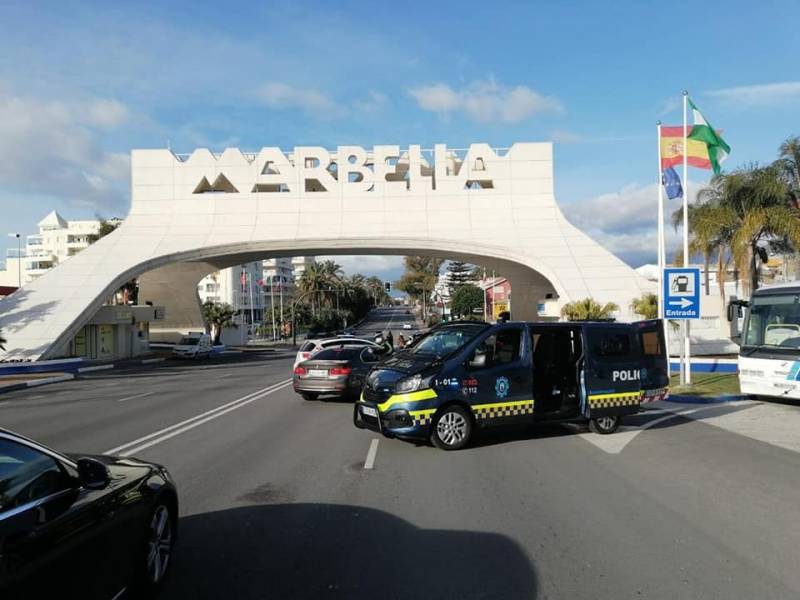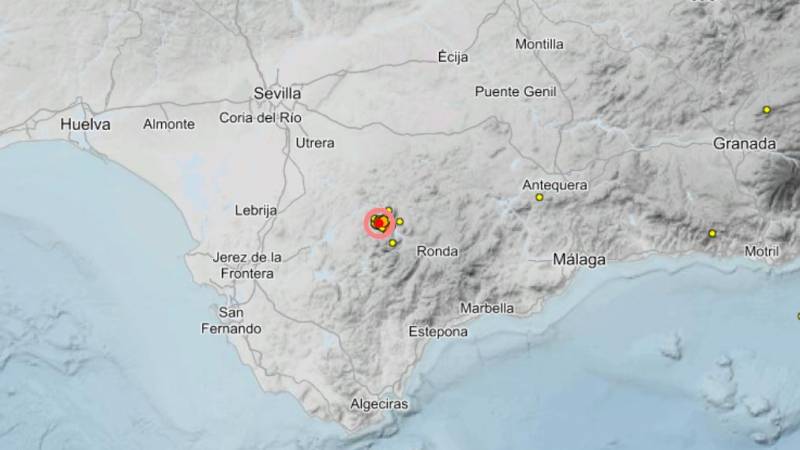- Region
- Águilas
- Alhama de Murcia
- Jumilla
- Lorca
- Los Alcázares
- Mazarrón
- San Javier
-
ALL AREAS & TOWNS
- AREAS
- SOUTH WEST
- MAR MENOR
- MURCIA CITY & CENTRAL
- NORTH & NORTH WEST
- TOWNS
- Abanilla
- Abarán
- Aguilas
- Alamillo
- Alcantarilla
- Aledo
- Alhama de Murcia
- Archena
- Balsicas
- Blanca
- Bolnuevo
- Bullas
- Cañadas del Romero
- Cabo de Palos
- Calasparra
- Camping Bolnuevo
- Campo De Ricote
- Camposol
- Canada De La Lena
- Caravaca de la Cruz
- Cartagena
- Cehegin
- Ceuti
- Cieza
- Condado de Alhama
- Corvera
- Costa Cálida
- Cuevas De Almanzora
- Cuevas de Reyllo
- El Carmoli
- El Mojon
- El Molino (Puerto Lumbreras)
- El Pareton / Cantareros
- El Raso
- El Valle Golf Resort
- Fortuna
- Fuente Alamo
- Hacienda del Alamo Golf Resort
- Hacienda Riquelme Golf Resort
- Isla Plana
- Islas Menores & Mar de Cristal
- Jumilla
- La Azohia
- La Charca
- La Manga Club
- La Manga del Mar Menor
- La Pinilla
- La Puebla
- La Torre
- La Torre Golf Resort
- La Unión
- Las Palas
- Las Ramblas
- Las Ramblas Golf
- Las Torres de Cotillas
- Leiva
- Librilla
- Lo Pagan
- Lo Santiago
- Lorca
- Lorquí
- Los Alcázares
- Los Balcones
- Los Belones
- Los Canovas
- Los Nietos
- Los Perez (Tallante)
- Los Urrutias
- Los Ventorrillos
- Mar De Cristal
- Mar Menor
- Mar Menor Golf Resort
- Mazarrón
- Mazarrón Country Club
- Molina de Segura
- Moratalla
- Mula
- Murcia City
- Murcia Property
- Pareton
- Peraleja Golf Resort
- Perin
- Pilar de la Horadada
- Pinar de Campoverde
- Pinoso
- Playa Honda
- Playa Honda / Playa Paraíso
- Pliego
- Portmán
- Pozo Estrecho
- Puerto de Mazarrón
- Puerto Lumbreras
- Puntas De Calnegre
- Region of Murcia
- Ricote
- Roda Golf Resort
- Roldan
- Roldan and Lo Ferro
- San Javier
- San Pedro del Pinatar
- Santiago de la Ribera
- Sierra Espuña
- Sucina
- Tallante
- Terrazas de la Torre Golf Resort
- Torre Pacheco
- Totana
- What's On Weekly Bulletin
- Yecla


- EDITIONS:
 Spanish News Today
Spanish News Today
 Alicante Today
Alicante Today
 Andalucia Today
Andalucia Today
article_detail
Spanish News Today Editors Roundup Weekly Bulletin July 21

FEATURED ARTICLES: "Spain fries in intense Charon Heatwave" and "General election this Sunday will decide fate of the country for next 4 years"
How can anyone live in these conditions, when it’s over 40ºC is the shade during the day and never cooler than 20ºC at night? Of course, when a heatwave like the one that struck Spain this week comes along, we all try to stay out of the midday sun (what do they say about mad dogs and Englishmen…?) and to make the most of every slight breeze that comes through the window at night.
Those who live in Spain year-round are actually getting used to crazily hot temperatures every summer and are finding mechanisms to cope, but spare a thought for those poor souls who come over from the UK/Norway/Germany/the Netherlands etc. just for 10 days or a few weeks and are suddenly faced with oven-like conditions. This week, we answer for you the question: “Can I get a refund if I cancel my vacation because of the heat?”
We’ve also got a bit of background information for you to the election happening in Spain this weekend, such as who the main players are, who is likely to win and what it could mean for the future of the country over the next four years until the next general election (providing there’s not a re-do!).
Also, a massive thanks to all of you who left your feedback for us by email last week. Even if I didn’t have time to answer all of you personally, your contribution is much appreciated and will go a long way to making this roundup as good as it possibly can be for you. Remember to keep the email address editor@spaintodayonline.com on file to get in touch with us whenever you need/want to.
Heatwave holiday?
It was an absolute scorcher this week in Spain, with Heatwave Charon (named after the boatman in Greek mythology who ferries the dead to the underworld) leaving hellish temperatures well in excess of 40ºC in parts of the south of the country, notably Seville and Cordoba.
And it wasn’t just Spain, as Italy and Greece also took the brunt of the punishing heat in southern Europe, while North America and Southeast Asia sweltered in their own heatwaves.
While temperatures of up to 46ºC are far too hot for comfort for most people, it is true that most of us jet off from our normally dreary climates for one thing and one thing only: the sun. But balmy mid-summer temperatures and the extremes of a heatwave are two very different beasts, as so many holidaymakers are finding out in scorching Spain just now.
 Those with trips booked might be feeling a little nervous about enduring such crushing heat but since all the experts believe the summers will keep getting hotter, heatwaves will probably be something we just have to live with.
Those with trips booked might be feeling a little nervous about enduring such crushing heat but since all the experts believe the summers will keep getting hotter, heatwaves will probably be something we just have to live with.Having said that, many groups such as older adults and very young children are particularly sensitive to heatstroke, so if you’re flying from the UK it’s worth checking if the Foreign Office have posted any travel warnings.
But if you decide to cancel a holiday abroad because you don’t think you’ll be able to cope with the heatwave, it’s important to know that in most cases, insurance policies simply do not cover what’s known as a ‘disinclination to travel’.
However, those already abroad whose health is suffering because of the heat might have a chance at a partial refund under a ‘curtailment’ clause.
As consumer rights expert Martyn James explained at the height of this week’s heatwave, “As soon as official guidance says it is dangerous to travel, that is when the ‘curtailment’ clauses for refunds kick in.”
On the other hand, if your tour operator cancels your trip or any paid for events or activities, you’ll usually be entitled to a refund.
Holidays during heatwaves can still be perfectly enjoyable with just a few little tweaks to your schedule: avoid the full sun during the hottest part of the day and when you do venture out, slather on the high-factor sunblock. Try to keep alcohol and caffeinated drinks to a minimum and instead load up on water and fresh fruit.
Bear in mind though that there are plenty of tips and tricks about staying cool out there, most of which simply don’t work and can actually be harmful.
 One common myth that always does the rounds is that a freezing cold shower will give the ultimate relief during a heatwave. This is a huge mistake, according to pharmacist and popular social media guru Álvaro Fernández.
One common myth that always does the rounds is that a freezing cold shower will give the ultimate relief during a heatwave. This is a huge mistake, according to pharmacist and popular social media guru Álvaro Fernández.According to Fernández, indulging in an icy shower will only cool you down for ten minutes at most. This is because cold water causes the blood vessels in the skin to constrict to conserve body heat. The result: you’ll soon feel even hotter than before the punishing regime!
It’s actually far more useful to shower in lukewarm water since this helps increase blood flow to the skin, which will help your body to cool down. Alternatively, an ice pack applied to the palms of the hands, the soles of the feet and the upper part of the face will help remove body heat through evaporation, just like we do when we sweat.
Spanish general election this Sunday

We’re just days away from the Spanish general election that is to be held this Sunday July 23. The stakes couldn’t be higher and the race couldn’t be closer.
After five years in power, Pedro Sánchez and the leftwing socialist party the PSOE called a snap general election last May following their disastrous showing at the local and regional elections.
Since being in power, the PSOE and its coalition party Podemos have introduced important labour reforms in Spain, paid menstrual leave, changes to abortion laws for women, a euthanasia law, legislation for minimum basic income, the Animal Welfare Law and the Democratic Historical Memory Law as a way of repairing the still-open wounds of Spain’s Civil War and dictatorship years.
The PP, meanwhile, have a large following in Spain – not for nothing are they called the Popular Party – and a PP-led majority government headed by President Mariano Rajoy governed from 2011-2018.
However, despite the trouncing the PSOE got from the centre-right PP party and the far-right VOX at the municipal and regional level, it is far from a foregone conclusion that the socialists will lose this general election.
Indeed, the heavy loss has served to rally Spain’s left and the polls suggest that it will be a close-run thing between the PSOE and the PP, which are Spain’s two largest political parties.
However, indications also suggest that neither Sánchez nor Alberto Núñez Feijóo, the PP’s leader of the opposition, will receive enough votes to govern alone, meaning that Spain could be in for another coalition government.
Last time, the PSOE made a pact with the far-left Unidos Podemos party in order to govern, and now, if they want to continue in power, they may have to do the same with the fledgling Sumar party (and possibly some other, smaller local leftwing parties that support Basque and Catalan independence and which are unpopular with most people from other parts of Spain).
The PP, on the other hand, are likely to have to form a coalition with the extreme rightwing party VOX if they have any chance of governing, as they have done at the local and regional level in so many places in Spain. That would be the first time since the fall of the fascist dictator Franco in 1975 and the introduction of democracy that Spain has an extreme-right government.
As such, this election is being billed by Spain’s left and by political commentators elsewhere in Europe as a test of whether Spain can be a bastion against a rising tide of nationalism and populism on the continent, or whether it will follow in the footsteps of Italy, Austria and Hungary in installing far-right governments and open the door for France and Germany to do the same.
In essence, because of Spain’s recently fractured political landscape and the rise of smaller parties to challenge the PP and PSOE in the last few years, any vote for the moderate PSOE will also be a vote for the extreme left and any vote for the moderate PP will also be a vote for the extreme right.
For many, a PP-VOX coalition is the most likely outcome of Sunday’s elections, but there is also a third option – that the parties cannot come to any sort of agreement to create the required majority to govern and that fresh elections will be called. This is not as outlandish as it sounds; Spain had no fewer than four general elections between December 2015 and November 2019 before finally settling on a government!
So what will all this mean for the future of Spain? Well, if there ends up being a leftwing coalition government like we have now, we can expect to see a continuation of the mass spending of public money on social projects. If there is a rightwing alliance, they will probably focus on cutting back this indiscriminate public spending that is putting the country into debt and introducing economic measures aimed at boosting the economy. In VOX’s case, they’ll probably focus mainly on making sure there are no rainbow flags allowed anywhere in the country.
And if there are more elections, well… get ready a long, drawn-out political squabble that’s even more bloody than what these people normally engage in.
It’s also worth pointing out here that, unlike the municipal elections a couple of months ago, foreign citizens resident in Spain CANNOT vote in general elections in Spain, so don’t worry if you haven’t got a ballot slip. You’re not considered important enough to have the right to vote.
Just as last time in those municipal elections, there is controversy over the rigour of the democratic processes in this election as hundreds of thousands of people claim they haven’t been able to register for a postal vote. Postal voting in this election is a form of casting the ballot that is more popular than ever before, given that the elections have been called right in the middle of many people’s summer holidays.
Royal rumble
 One person who has a stake in the results of this election is Spain’s former king Juan Carlos I. The colourful character is rarely far from the public eye and he’s making headlines again this week with a renewed appeal to the UK courts to have the harassment case against him thrown out.
One person who has a stake in the results of this election is Spain’s former king Juan Carlos I. The colourful character is rarely far from the public eye and he’s making headlines again this week with a renewed appeal to the UK courts to have the harassment case against him thrown out.The disgraced monarch is being sued for 146 million euros by his former mistress Corinna Larsen, who claims he hired the Spanish intelligence agency to harass her and her family after she ended their five-year affair.
According to her lawyers, agents working for Juan Carlos broke into her Monaco and Switzerland homes in 2021 and left a threatening message in the form of a book about Princess Diana’s death on her coffee table.
The emeritus king’s lawyers have roundly denied all the charges but insist that if he must face trial, Juan Carlos should be allowed to do so in Spain rather than in the UK.
The court’s decision is an important one for Juan Carlos’s future, since close friends claim he wants to move back to Spain permanently if the conservative PP wins the upcoming general election. PP leader Feijóo has previously stated that the former monarch is welcome to move home, once there are no outstanding legal cases against him.
Murcia

Spain has been in a celebratory sort of mood this week since Carlos Alcaraz beat Novak Djokovic to win the Wimbledon men’s singles championship, but no autonomous community has been loving the triumph of the Spaniard on the world tennis stage more than Murcia, his home.
Alcaraz was born and raised in El Palmar, in Murcia capital city, and the whole Region has embraced him as their own since his rise to superstardom. He is even the star of a new campaign by the Region of Murcia’s Tourism Board to promote the province as a holiday destination for Spaniards and foreigners. Some are calling him the new Rafa Nadal, but if you ask Carlos he’ll tell you that, much as he admires the elder statesman of Spanish tennis, he’s his own person and his own player.
And that’s certainly true as he made his mark with a fabulous 1-6, 7-6(6), 6-1, 3-6, 6-4 win against Wimbledon veteran Djokovic in what will surely go down as one of tennis’s most heart-racing matches ever.
The moment 🌟#Wimbledon | @carlosalcaraz pic.twitter.com/sjjE7FhGn4
— Wimbledon (@Wimbledon) July 16, 2023
Alcaraz was number 1 seed for Wimbledon after winning the Queens championship last month, while Djokovic, who has won Wimbledon seven times, was seeded 2. With this win, ‘Carlitos’ has cemented his place on the world stage at the age of just 20. (He had already become world number 1 when he was 19 years old!). He has also helped to put Spain’s sadly all-too-often overlooked Region of Murcia firmly on the map.
From Alcaraz to Los Alcázares, the Mar Menor municipality has been trying to put itself on the map by offering up to 500 euros to the first couples willing to tie the knot on its beaches since new legislation was passed allowing people to get married on the lagoon’s shores.
The green light has been given for weddings to be held on three of the municipality’s beaches, Playa Carrión, Playa Manzanares and Playa de Las Palmeras. Couples will be able to say a waterside ‘I do’ every Saturday and Sunday of the year, except for the traditional wedding-heavy months of July and August.
Anyone hoping to get the ‘generous’ 500-euro contribution towards their wedding expenses will have to make some concessions, though. In the interests of protecting the Mar Menor environment, ceremonies will be limited to three hours; the wedding party can only occupy a maximum of eighty square metres of beach; and throwing rice and confetti is banned.
You may remember that beaches belonging to the municipality of Cartagena already tried this scheme and the reception has been underwhelming, to say the least. Only one couple has opted to tie the knot in Cabo de Palos since November, which is why Los Alcázares is determined to draw couples in, not only with the promise of 500 euros for the first three couples to marry there, but also extra services “such as candlelight evenings, sunsets and endless nights,” according to the Town Hall.
It’s not all romance on the beaches and in the water, of course. This week has brought the usual sad stories of injury and fatality while swimming, after a 70-year-old German woman was pulled from the sea at Bolnuevo beach on Monday with a very serious series of stings from a toxic Portuguese Man o’ War jellyfish. She was quickly stabilised by paramedics before being transferred to the Puerto de Mazarrón Health Centre, and is now recovering, though she has a lot of injuries which have left her in a lot of pain.
There was also the tragic story of a 4-year-old boy who died just days after he was rescued from a communal swimming pool in the Altorreal urbanisation in Molina de Segura.
Like the German lady, the young boy was also in a critical condition when he was pulled from the water and was revived with CPR at the scene before being taken to hospital. He survived for two days but unfortunately just being pulled alive from the water is sometimes not enough and the lad sadly passed away.
 On a lighter note, you can grab your Stetson and your cowboy boots and mosey on down to a hoe-down at the Club MMGR’s first birthday celebration “Club Goes Country” event on the Mar Menor Golf Resort this Saturday. There are always plenty of live music and fun nights happening at the Region of Murcia resorts, especially now in summer when all the people with holiday homes and the tourists who come to rent all fly out to Spain, and the Club Goes Country is an ever-popular event with line dancing, a rodeo bull and prizes for the best fancy dress, plus dinner and drinks, of course.
On a lighter note, you can grab your Stetson and your cowboy boots and mosey on down to a hoe-down at the Club MMGR’s first birthday celebration “Club Goes Country” event on the Mar Menor Golf Resort this Saturday. There are always plenty of live music and fun nights happening at the Region of Murcia resorts, especially now in summer when all the people with holiday homes and the tourists who come to rent all fly out to Spain, and the Club Goes Country is an ever-popular event with line dancing, a rodeo bull and prizes for the best fancy dress, plus dinner and drinks, of course.Check out our EVENTS DIARY for events and activities coming up in the Region of Murcia:
Spain
The devastation that heatwaves are capable of creating has been highlighted in the Canary Islands this week, where a rampaging wildfire is only now being brought under control after raging across the countryside of La Palma since last weekend. Thousands of hectares of land burned to the ground and as many residents had to be evacuated from their homes in Pinar de Puntagorda and Tijarafe.
This is the first natural disaster to strike the island since a volcanic eruption flattened homes and farmland back in 2021, and will surely not be the last major wildfire we see in Spain this summer.

While people are fleeing from the mountains of the Canary Islands, those along the coast have been hit with the unwelcome news of a toxic algae taking over the rocky shores of Spain’s beaches.
The problem with this microorganism is that it produces toxins that float in the air and, if inhaled, can cause a host of flu-like symptoms such as runny nose, sneezing, scratchy throat and fever. Moreover, the invasive species wreaks havoc on native marine plant life.
Having arrived from the tropics in the 1990s, the algae has bloomed in recent years and now flourishes in every corner of Spain as a result of climate change and the rapidly rising temperature of our waters.
But while the experts acknowledge that the spread of this algae “cannot be controlled”, its unsightly presence shouldn’t be any major cause for concern since symptoms are usually quite mild and disappear after a few hours.
As we know, each summer there are reports of more and more tragedies on Spain’s beaches and in its resorts, but this week we brought you the heart-warming story of a five-year-old Welsh schoolboy whose quick thinking and bravery saved the life of his older sister.
Little Harvey Taylor had been splashing in the Mallorca pool with eight-year-old Elliemay when she swam out of her depth and slipped out of her inflatable ring. But the young child knew exactly what to do and sprang into action, instantly alerting the poolside adults and almost certainly saving the girl’s life.

By an incredible stroke of luck, the RNLI had visited Harvey’s school just days before the holiday and instructed the children in basic emergency responses. Once the family returned to the UK, RNLI safety instructor Myfanwy Jones made another visit to Harvey’s school, this time to present the brave youngster with a special certificate.
Although inflation remains high across Europe and variable mortgages are set to become even more expensive thanks to another ECB rate hike, Spanish property is still in demand, but is the summer of 2023 a good time to buy?
The cost of housing increased by just 0.6% in the first quarter and most of the experts agree that the Spanish housing market should remain pretty stable for the rest of the year, with a maximum price rise of around 2% predicted, particularly in high-demand areas like the Mediterranean coast.
However, if interest rates and inflation continue to rise, which they almost certainly will do, demand for homes in Spain will drop. And as demand falls, so too must the prices.
On the whole though, property prices differ widely from place to place. In Castellón, for example, the price per square metre is 1,328 euros and in Murcia it’s 1,465, while a home in Palma de Mallorca will set buyers back 3,966 euros per square metre and 2,989 in the ever-popular Malaga.
Alicante
Few images evoke the feeling of summer better than sipping an exotic fruity drink while relaxing on the beach, but the authorities in Benidorm have warned that purchasing a tasty beverage from illegal seaside vendors could cost you more than a few euros; it could cost you your health.
The resort’s famous beaches have become “infested” with so-called ‘mojiteros’, people without licences who sell flashy cocktails to unwitting tourists, according to local councillor Cristina Escoda. But quite aside from taking business from legitimate tax-paying local businesses, these drinks are often prepared out of the boot of a car or even on the ground, with virtually no sanitary measures.
And although Benidorm City Council has employed more police officers this summer to watch the illegal activity, these peddlers are doing a roaring trade. As a result, a new campaign will be launched this week aimed at alerting tourists against consuming drinks prepared without the proper sanitary controls.

Those brave enough to venture out onto the Alicante streets in the midst of the latest heatwave might have been startled to see several enormous palm trees toppled to the ground in many of the provinces towns and cities.
The beautiful trees are suffering from water stress which is literally causing them to fall over where they stand as their roots shrivel up, unable to support the weight of the plant. Because, while palms are desert trees, they do need some ground water, and even though April, May and June were pretty wet, the sudden change to roaring temperatures means the plants simply haven’t had enough time to adapt.
So serious is the problem that Elche Film Festival actually had to cancel all its screenings at the Hort del Xocolater when a seemingly healthy palm tree collapsed last Sunday.
Another dangerous fugitive has been taken off Alicante’s streets by police this week, this time in Orihuela. The Polish murder suspect is part of a criminal gang dedicated to cross-border smuggling and was wanted for his part in an armed conflict near the border with the Czech Republic and Germany, known locally as the ‘War of the Spirits’, in the 90s.
When police in Poland turned up the body of a man who disappeared in 1997 they immediately zeroed in on two suspects. One was quickly apprehended near Warsaw while the other fled to Spain.
He was eventually tracked to an Orihuela house which he shares with his partner and was arrested. If found guilty in Poland, he faces 25 years behind bars.
If you fancy travelling over to Petrer this weekend, you can catch a free open-air flamenco concert on Saturday evening, starting at 10pm, or a free dance show on Sunday at 8.30pm… or even both if you like! The price is the same either way!
Check out the Costa Blanca What’s On and Where to Go Facebook group to see more things to do around Alicante province!
Andalucía
We’ve written before about the Costa del Sol being a hideout for criminal types of all sorts looking to evade the law while working on their tan. Of course, that’s an exaggeration; the coast of Málaga is a big place with hundreds of thousands of people – Spaniards and non-Spaniards – living there, and a tiny percentage of them are troublemakers.
That said, it’s normally only the negative news that reaches the headlines, and it is no different this week. The latest incident was a shooting in a Marbella shopping centre.
 It happened on Tuesday at the Cristamar shopping in Puerto Banús, the ultra-luxury part of the already luxurious Marbella. It seems a man, only identifiable by the red T-shirt he was wearing at the time, opened fire with an assault weapon, shooting twice but thankfully hitting no one.
It happened on Tuesday at the Cristamar shopping in Puerto Banús, the ultra-luxury part of the already luxurious Marbella. It seems a man, only identifiable by the red T-shirt he was wearing at the time, opened fire with an assault weapon, shooting twice but thankfully hitting no one.It’s still not clear who did the shooting, who they were trying to shoot at or why. What is known is that the shooter made a quick getaway in a BMW X3 with fake licence plates, which was later found engulfed in flames on Calle Londres, 5 kilometres from the site of the shooting.
Don’t let this put you off going to Marbella or any other part of the Costa del Sol, though. As stated before, these are isolated incidents and hardly indicative of the day-to-day life of most people there.
A couple of days later, on the border of Málaga where it meets the province of Cádiz, there were at least ten and possibly up to 15 earthquakes registered in the space of just a few hours.
Minor earthquakes are nothing rare in southern Spain, but to have around a dozen in just one morning, as occurred this Thursday 20, is something of an anomaly. The strongest of these earthquakes measured 3.5 on the Richter scale, which isn’t very strong, and the rest all ranged between the 1.6- and 2.9-mark.
Thankfully, nobody was harmed in any of these mini-quakes and no personal property was damaged. Again, don’t let this ruin your trip to Cádiz if you’re going – it’s really a lovely corner of the country. But these quakes do serve as a good reminder that we are at the whims of the power of nature (as if we hadn’t had enough reminders of that already of late) and that it always pays to know how to act in an emergency situation, such as an earthquake.

You may have missed…
- Tarragona headless baby confirmed as migrant boat victim.
It has been confirmed that the remains found a week ago on the Roda de Berà beach in Tarragona belong to an 8-month-old baby girl who was making the dangerous journey from Algeria to Spain with her parents in a migrant boat. - Parts of the Mar Menor to be set aside just for water sports.
Certain areas of the Mar Menor may soon be cordoned off and made available exclusively for those who want to practice water sports like surfing, paddle-surfing, kitesurfing and wind foiling, in an effort to attract more out-of-season tourists. - Spanish tortilla de patatas recalled from supermarkets due to health scare.
Some isolated batches of the Alipende brand of Spanish omelette, sold by supermarket Ahorramas, have been recalled for health reasons related to cases of botulism. If you have bought one of these tortillas, you can return it for a full refund. - Terra Natura wins Tourism Award.
Terra Natura Benidorm and Terra Natura Murcia have been awarded a Tourism Award in the category of ‘Leisure and Entertainment’ for their work in promoting the Spanish tourism sector and their commitment to sustainability and the environment. - Cordoba opens its iconic street market at night to combat the heatwave.
Spanish cities like Cordoba and Seville are adapting to the changing climate and extreme heat by opening street markets and swimming pools at night.
So that’s it for another week! Have a nice weekend and see you next Friday.
’Til then!
Contact Murcia Today: Editorial 000 000 000 /
Office 000 000 000




















